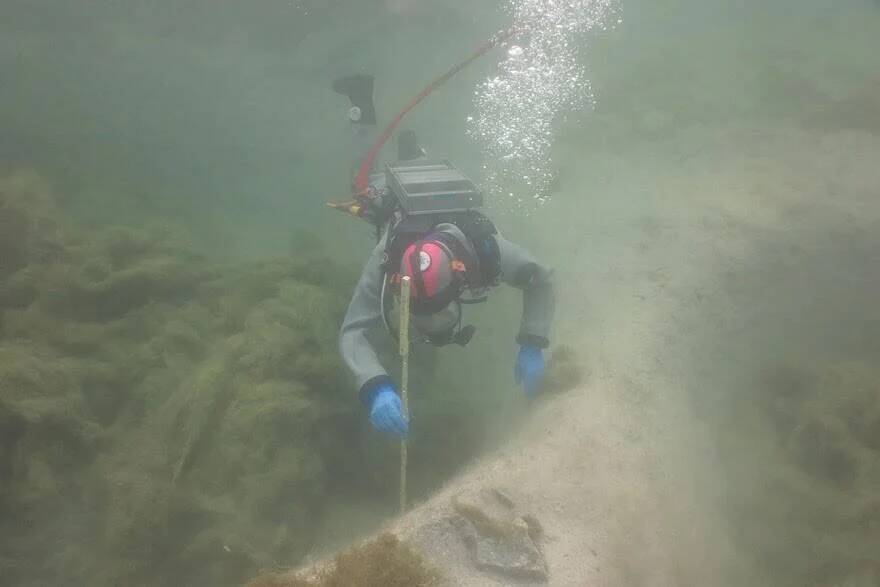The 3,000-Year-Old Bronze Age Village Beneath Lake Lucerne In Switzerland

Unterwasserarchäologie UWAD Zürich/Canton Lucerne
A marine archaeologist exploring the remains of the settlement in Lake Lucerne.
In April 2021, marine archaeologists announced the discovery of a secret hidden at the bottom of Switzerland’s Lake Lucerne: a Bronze Age village buried beneath a layer of mud.
While Bronze Age settlements across Europe aren’t a rarity, this new discovery greatly changed the understanding of life in the region, as the village may have been built 3,000 years ago.
A statement released by officials in the canton of Lucerne at the time said that this evidence made Lucerne “2,000 years older than previously thought.”
Most astonishingly, however, is that the find was entirely serendipitous.
Divers had been constructing a new pipeline beneath the lake when they suddenly came across a number of wooden poles hinting at the existence of a previous human settlement. Then, they found shards of pottery.
After sending some samples off for analysis, they found that these pieces of debris dated back to around 1000 B.C.E., completely changing Lucerne’s historical timeline.
And while Lake Lucerne now covers 43 square miles with depths up to 700 feet, the discovery of the sunken city showed that, once upon a time, the lake basin had been a suitable area for a human settlement.





